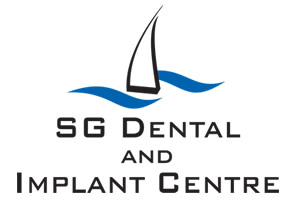Initial Care With New Dental Implants
Giving your new implants the best possible start.
As we have mentioned in previous Mike Allen Blogs, dental implants are an excellent way to replace missing teeth, and can last for twenty years or more providing that you take good care of them. Whilst this is important throughout their life, the first few months especially can be critical.
In today’s blog, your local Burton implant dentist offers some advice on how to get your implants off to the best possible start and ready for a long and useful life.
Stay healthy
There is no need to join a gym or exercise class, but keeping your body in good condition will help the area of the implant procedure to heal. Exercise improves blood flow around the body, including the gums. A healthier body means that healing may be faster and infections more easily avoided. Even walking more and taking the stairs instead of elevators can contribute positively towards this.
Avoid alcohol and cigarettes
Both alcohol and cigarette smoking increase the risk of gum infections and this is one of the biggest challenges to a successful dental implant placement. Both periodontitis and peri-implantitis can cause your newly placed dental implant to fail. Please follow our advice and avoid smoking and drinking (other than in small quantities), for a period of time both before and after your procedure at Mike Allen’s Dental Practice in Burton.
Watch what you eat
Your newly placed implants will take time to fuse with the bone structure and care should be taken about what you eat once they have been placed. Initially, liquid foods should be taken, such as thin soups. Soon afterwards, softer foods such as mashed potatoes and well cooked pasta can be added. Once your implants have successfully fused, usually around three months, you will be able to return progressively to your normal diet.
Keep your implants clean
It is, of course, important to keep your dental implants clean. Initially, the area may be too sore to brush, so use a warm saline solution and tip this around the area of the procedure for a few days. This will help to keep it free from bacteria. As the soreness subsides, a soft brush may be used to clean them, but take care to brush gently though.
Finally, although the above advice is good advice for all implant patients, there may be specific circumstances applicable for you, especially if you have a medical condition. Please make sure to listen to and follow any advice that we may give you. We are also available to answer any questions that may arise once your implants have been placed.
If you would like to discuss the possibility of dental implants placed to replace your missing teeth, please call Mike Allen’s Dental Practice on 01283 845345.
